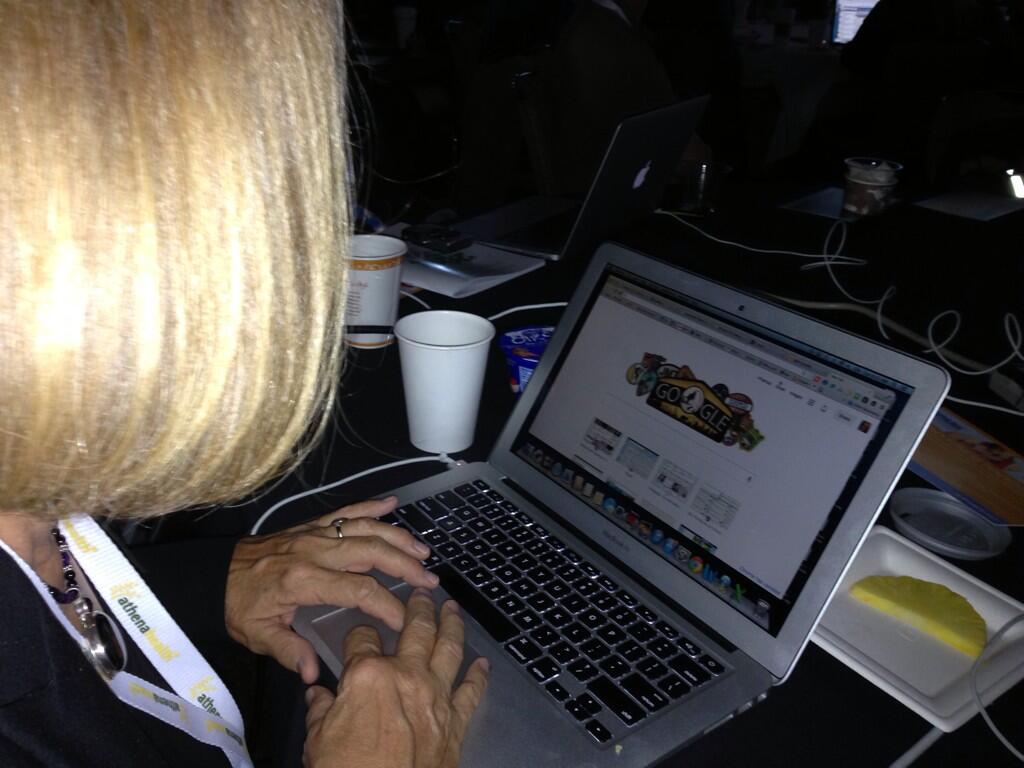A thoughtful piece that drilled in to the detail of events surrounding the arrival and subsequent consultations, admission and treatment of Thomas Eric Duncan
who sadly died on October 8 succumbing to the ravages of the Ebola virus
As the authors state
The mishandling of US Patient Zero is receiving widespread media attention highlighting failures in disaster management, infectious disease control, national security, and emergency department (ED) care.....also brought decision-making vulnerabilities in the era of the Electronic Health Record (EHR) into the public eyeMuch of the commentary generated "fear, uncertainty, and doubt about the competence of our health care delivery system" and while there were problems I agree with the authors that this is a “teachable moment” and a chance to identify the missed opportunities and key issues that we can learn from
The authors used the publicly available documents and testimony in their quest and it is important to note that they did not have access to the full record, the EMR used or indeed all the pieces of the puzzle and made up for this in some areas with educated guesses.
It is interesting to note that in the first visit to the ED the patient's temperature spiked to 103 degrees accompanied by pain described by the patient as 8/10 in severity.
| This from a Malaria Study but typical of the Spike in Temperature found with this disease |
He was diagnosed on initial discharge included sinusitis but "but that CT scans of “head and abdomen” ordered during the ED visit showed no evidence of sinusitis" and perhaps with more attention and importantly time made available to the clinical staff would offer them the opportunity to focus on the history and examination and less on high tech investigation. In many cases clinicians are forced into their use not by clinical practice but rather to meet the production pressures - as the authors put it
A host of system-related factors detract from optimal conditions for critical thinking in the ED, leading clinicians to lose situational awareness. These include production pressures, distractions, and inefficient processesThe upshot was a discharge and subsequent return days later at and even then:
even after the second ED visit which led to hospitalization, strict Ebola isolation precautions were not followed for 2 days, until the diagnosis was confirmed by the CDCOffering a window into the events that is made so much easier with the benefit of 20/20 hindsight
The authors offer some learning opportunities that are worth highlighting
Top of the list in would be working with software developers to improve EHR usabilityAs this case illustrates, EHR-based clinical workflows often fail to optimize information sharing amongst various team members, leading to lapses in recognizing specific clinical findings that could aid in rapid and accurate diagnosisAs an interesting addition none of the systems (or incentives) have any form of feedback loop built in to allow clinicians to learn from their actions.
As for the process of information capture - we have lost site of the information that is relevant in the fog of billing and regulatory driven template driven charting.
Condition-specific charting templates, drop-down selection lists, and checkboxes developed in response to billing or quality reporting requirements potentially distort history-taking, examination, and their accurate and comprehensive recording.. Clinicians also tend to ignore template-generated notes in their review process; often the signal-to-noise ratio in these notes is low. EHRs can lead to less verbal exchange, which is all the more needed and more effective when dealing with complex tasks and communicating critical informationRight on except to say this does not "potentially distort history-taking" - it does distort history-taking and
not "EHRs can lead to less verbal exchange" - EHRs do lead to less verbal exchanges
The data entry requirements place an enormous burden on our clinical professionals
who are tasked and measured not on clinical practice and the delivery of great care but on specific content of documentation that is mandated to capture clinical information in specific ways determined by the reimbursement, coding and regulatory system.
Other factors, such as heavy data entry requirements and frequent copy-and-paste from previous notes, detract from critical thinking during the diagnostic decision-making process... For EHRs to be most effective, they need to be able to automatically sort through patient data, identify the pertinent findings, and present them in an easy to understand manner. Computer algorithms could combine patient-specific information with the latest evidence-based clinical knowledge to help clinicians reach the correct diagnosisThis is the next frontier of Healthcare technology and in particular clinical documentation - we know we can sort through patient data, identify the pertinent findings - focused in these examples on quality of care and evidence based guidelines and we know computer algorithms can use patient specific information combined with evidence based knowledge to help
Technology can help but there are some fundamental flaws in the design and management of healthcare that are fed by the current incentives. Many initiatives attempting to improve patient safety and value-based purchasing but don't focus on accuracy and timeliness of diagnosis and in particular Outpatient reimbursement policies do not reward diagnostic decision-making, teamwork, or quality time spent with the patient in making a diagnosis.
What you incent is what you get and this needs to be changed as well.
